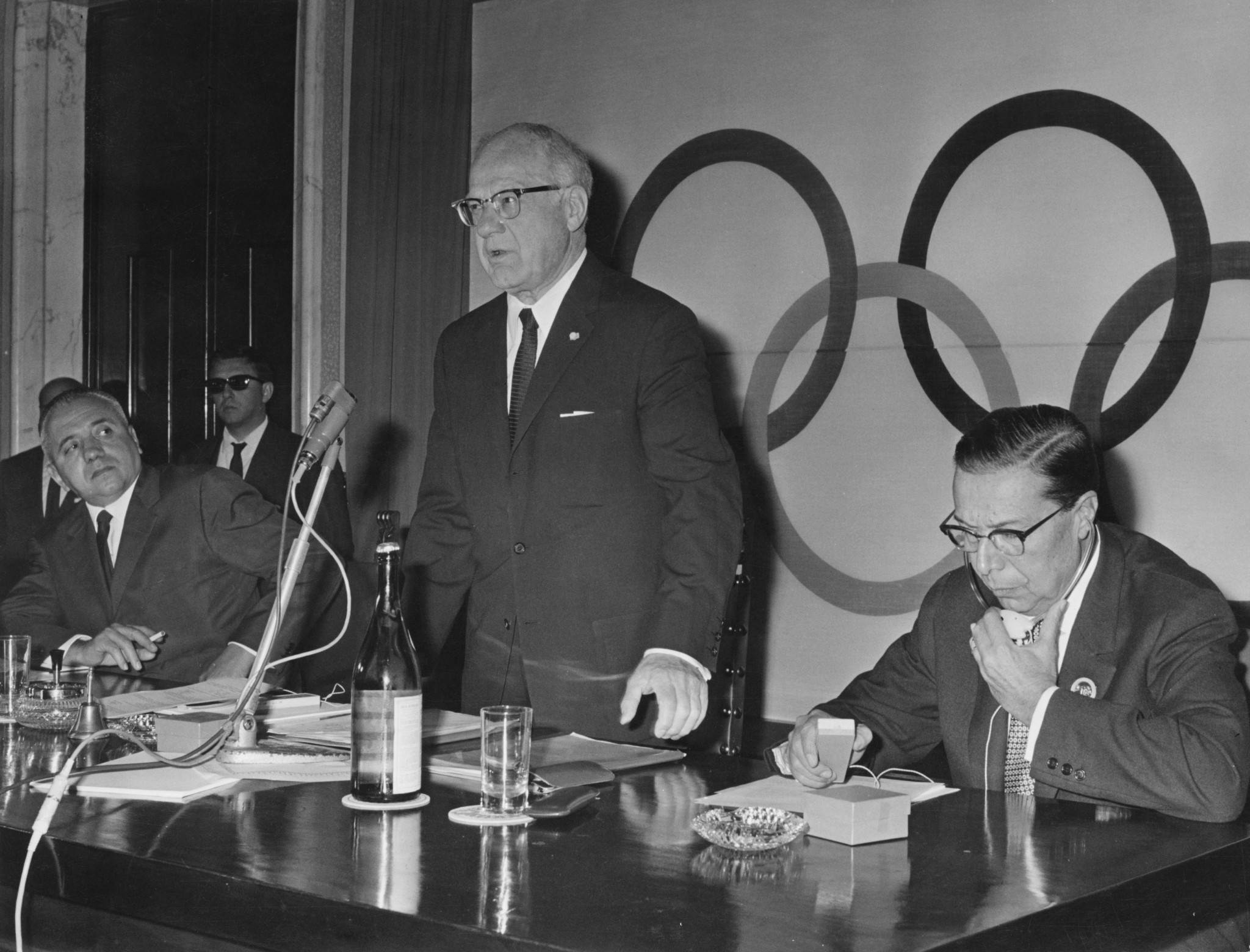International Olympic Committee (IOC) President Thomas Bach sees "no reason to rewrite history" amid a renewed focus on the legacy of the organisation’s former leader Avery Brundage.
The Asian Art Museum in San Francisco last month removed a bust of Brundage over concerns regarding his legacy, because of racist and anti-Semitic attitudes.
The bust was unveiled by the Asian Art Commission in 1972 and had sat in the foyer since in honour of the institution's founding patron.
The museum’s director Jay Xu admitted they had not been fully aware of Brundage's controversial past until 2016.
Xu added that the museum had removed Brundage’s name and would examine its foundations, with roughly 7,700 pieces from the former IOC President among the 17,000-plus objects which make up its collection.
Bach was asked, following the IOC Executive Board meeting today, whether the organisation would review historical figures associated with the Olympic Movement.
"Every organisation has to take their own decision," Bach said.
"We have taken note of this decision of the museum.
"On the one hand they have removed the bust of their founder, but on the other they keep the collections being donated by the founder and keep displaying them.
"This is in their responsibility.
"Every organisation will take their own decision.
"The role of Mr Brundage has been the focus of many studies and his history is pretty clear and has been evaluated.
"We see no reason to rewrite history in this moment."
Brundage, who had represented the United States at the 1912 Olympic Games in Stockholm in the pentathlon, served as President of the IOC from 1952 to 1972, having joined it as a member in 1936.
He died in 1975 and opposed the boycott of the 1936 Olympic Games in Berlin during his time as President of the American Olympic Committee, as it was then called.
There were calls, led by politicians in the US, to boycott the Games because of concerns around the morality of supporting an Olympics in a country led by a Nazi regime.
There was concern in Nazi Party leader Adolf Hitler's treatment of Jewish people, his belief in a superior race and how Jewish and black athletes representing the US at Berlin 1936 would be treated.
Brundage argued politics had no place in sport, claiming: "The Olympic Games belong to the athletes and not to the politicians."
In December 1935, the Amateur Athletic Union of the United States voted to send a team to Berlin 1936, with Brundage playing a key role in swinging the vote in favour of participation.
The Museum benefactor also expelled African-American athletes Tommie Smith and John Carlos from the 1968 Olympic Games after their black-gloved protest on the podium following their gold and bronze medals in the 200 metres.
Brundage deemed the pair's actions to be a domestic political statement unfit for the Olympic Games.
Brundage was the first recipient of the Olympic Order when it was introduced in 1975 and the award has also been given to Nicolae Ceausescu, Erich Honecker, Todor Zhivkov and Robert Mugabe.
Olympic honorees do also include Nelson Mandela, Jesse Owens and Pope John Paul II.
Caribbean National Olympic Committees (CANOC) President Brian Lewis has called for the IOC to embrace "uncomfortable conversations".
Lewis has called for the reinstatement of two African-American athletes 48 years after they received a life ban for a podium protest.
Vince Matthews and Wayne Collett, 400m gold and silver medallists respectively, were expelled from the 1972 Munich Olympics and banned for life after making a podium protest against racial inequality in the US.
Their gesture was described by the IOC as an "insulting display", which threatened to withhold medals in the event of future protests.
Athlete activism has been a topic of renewed focus in recent weeks due to support for the Black Lives Matter movement, following the death of George Floyd in the US.
The IOC last month vowed to hold a consultation process on Rule 50, which potentially could lead to the rule being reviewed.
Bach said today that the consultation process was ongoing.
Rule 50 of the Olympic Charter is designed to protect the neutrality of sport and the Olympic Movement and states: "No kind of demonstration or political, religious or racial propaganda is permitted in any Olympic sites, venues or other areas".

